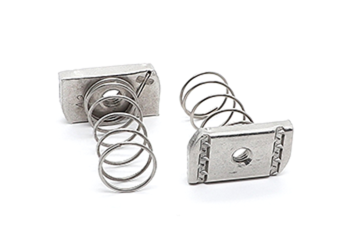Nov . 27, 2024 23:36 Back to list
Cavity Wall Bolts for Secure Structural Support and Enhanced Stability in Construction
Understanding Cavity Wall Bolts Importance and Applications
Cavity wall bolts play a crucial role in modern construction, particularly in buildings that utilize cavity wall systems. These specialized fasteners are designed to provide structural integrity and ensure the stability of walls, but their function extends well beyond mere support. This article delves into the significance, types, uses, and installation of cavity wall bolts, shedding light on a critical aspect of building construction.
What Are Cavity Walls?
Cavity walls consist of two layers of masonry, typically separated by a gap or cavity. This design serves various purposes, including improved insulation, moisture control, and enhanced structural performance. The inner wall provides support for the building while the outer wall protects it from environmental effects. However, to ensure that these two layers work together effectively, proper fastening is essential.
The Role of Cavity Wall Bolts
Cavity wall bolts are used to anchor the outer leaf of the cavity wall to the inner leaf. They help to stabilize the structure, preventing lateral movement that can be caused by wind load or other environmental factors. Additionally, cavity wall bolts aid in maintaining the integrity of the building by resisting forces that can threaten its stability.
Types of Cavity Wall Bolts
1. Standard Cavity Wall Bolts These are the most common types. They come in various lengths and diameters, allowing for customization according to the wall thickness. The standard bolt typically has a threaded end that secures it within the masonry.
2. Sleeve Anchors These bolts feature a sleeve that expands when the bolt is tightened, offering enhanced grip within the wall material. Sleeve anchors are especially useful in softer materials, where standard bolts might not provide adequate holding power.
3. Resin Bonded Bolts These bolts use a resin or adhesive to bond the bolt to the masonry, providing additional strength and resistance to pull-out forces. They are ideal for situations where traditional methods may not suffice, such as in older buildings or weak masonry.
4. Headed Bolts These bolts have a hexagonal or other shaped head, allowing for greater torque application during installation. This provides a stronger connection and better resistance against shear forces.
Benefits of Using Cavity Wall Bolts
cavity wall bolts

The primary benefit of cavity wall bolts is their ability to enhance the structural integrity of buildings
. They help prevent issues like wall bulging and separation of the wall layers, which can lead to significant structural damage over time. Furthermore, proper use of these bolts can improve thermal performance and reduce energy costs by minimizing heat transfer.Additionally, cavity wall bolts contribute to property safety. They are particularly important in regions prone to high winds or seismic activity, where the stability of the structure can be compromised. Using high-quality bolts tailored to specific environmental conditions reduces risks and enhances overall safety.
Installation Techniques
Installing cavity wall bolts requires careful planning and execution. Here are some steps commonly followed in the process
1. Planning Before installation, assess the wall's specifications, including thickness and material type, to determine the appropriate bolt type and length.
2. Drilling Use a drill to create holes in the masonry, ensuring they align with the cavities of the wall.
3. Inserting Bolts Insert the cavity wall bolts through the outer leaf into the inner leaf, ensuring they fit snugly.
4. Securing Tighten the bolts using appropriate tools, ensuring that they are secure but not over-tightened, which could damage the masonry.
5. Quality Check Finally, inspect the installation to ensure all bolts are properly fastened and assess any potential issues.
Conclusion
Cavity wall bolts are indispensable components in modern construction, providing essential stability and security to cavity wall structures. By understanding the types, applications, and installation methods of these fasteners, builders can ensure the longevity and safety of their projects. As construction practices continue to evolve, the significance of cavity wall bolts will undoubtedly remain, underscoring their vital role in creating resilient and enduring buildings.


